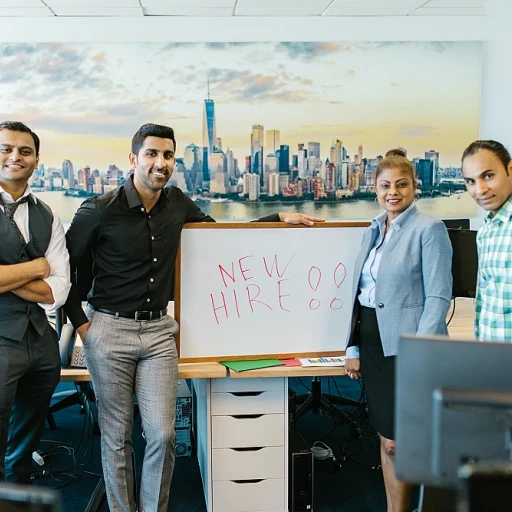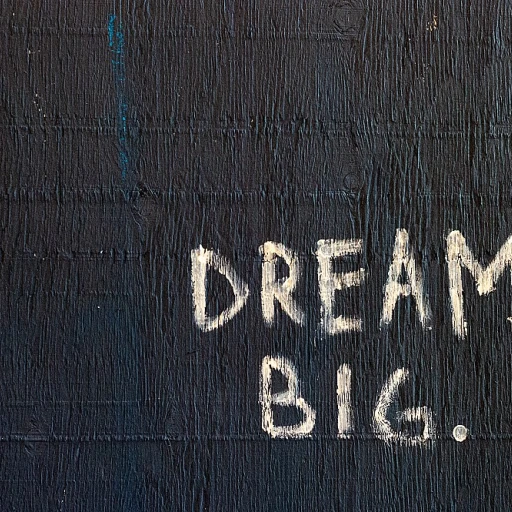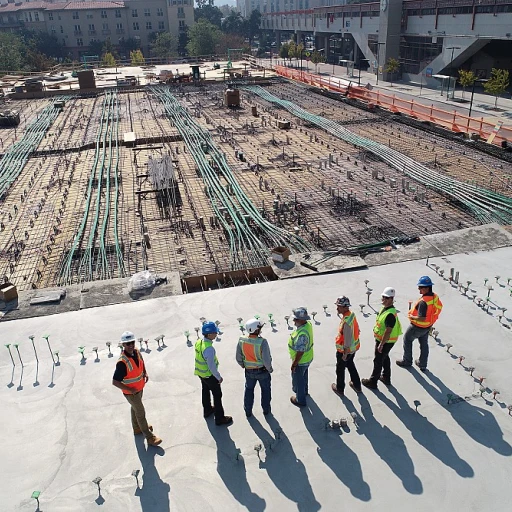The Purpose of a Screening Interview
Setting the Stage for Finding the Right Fit
The screening interview serves as the initial gateway in the hiring process, acting as a crucial filter that helps identify candidates who best fit the open position. This initial step is designed with a primary focus on evaluating basic qualifications and determining whether or not a candidate possesses the essential skills and abilities required for the role.
By concentrating efforts on pre screening, companies can effectively manage their time, ensuring that only those candidates who align with the company culture and job requirements proceed to the next stages of interviews. This helps to refine the pool of potential team members, ultimately leading to a more targeted and efficient hiring process.
In today's fast-paced hiring landscape, the method of conducting screening interviews has evolved significantly. Organizations now leverage a variety of tools and technologies, such as video interviews and phone screens, to optimize their interview process. This not only allows hiring teams to reach candidates globally but also accelerates interview scheduling, offering flexibility and convenience to both parties involved.
It's important to remember, though, that the purpose is not solely to assess applicants. Enhancing the candidate experience is equally critical. By ensuring effective HR communication during this phase, companies can distinguish themselves in competitive markets and leave a lasting positive impression on potential hires. For more insights, you can read about the
importance of communication in candidate experience.
A well-conducted screening interview sets a positive tone for subsequent interactions, paving the way for more in-depth analysis of candidates' qualifications and their potential contributions to the company. Through early and careful filtering, companies are better positioned to build cohesive, high-performing teams tailored to meet their long-term objectives.
How Screening Interviews Impact Candidate Experience
Influence on the Journey of Candidates
Screening interviews are a critical touchpoint in the hiring process, affecting the overall journey candidates undergo. The impression left on candidates during this interaction can shape their perception of the company culture and role they are aspiring to fill. A poorly managed screening session, be it a phone screening or video screening, might deter potential hires, while an effectively conducted one can engage and excite candidates about possible job opportunities.
During a screening interview, questions play a crucial role in setting the tone. They not only ascertain a candidate's fit for the position but also reflect the company's values and expectations. Candidates often judge a company based on the relevance and structure of the interview questions posed. Comprehensive pre-screening can efficiently weed out candidates who might not align with the company's objectives or team expectations.
Moreover, the format of the interview, whether it's a video interview or a phone interview, impacts the candidate's comfort and experience. Depending on resources, some companies opt for video screenings as they allow for a more personal connection than phone screens. These formats also cater to both the current remote trends in hiring and the busy schedules of potential hires, thereby optimizing interview scheduling.
This phase of the interview process also allows the hiring team to communicate the expectations related to the position what the applicants can achieve within the job, while subtly demonstrating the essence of company culture. This initial candidate interaction can lead to decreased time-to-hire and a more streamlined process if executed strategically. For further insights on optimizing the pre-screening interview process, take a look at this
detailed guide on effective pre-screening.
Unraveling the Screening Interview Approaches
In the realm of candidate interviews, screening methods vary widely, aiming to best match the interview format with the company’s needs and candidate's convenience. While such diversity can enrich the hiring journey, it also requires careful selection to align with the position and company culture.
Understanding Candidate-Centric Formats
Companies often opt for telephone or video screening to streamline the process. Phone interviews allow recruiters and candidates to cover basic questions rapidly, making time efficient for all parties involved. On the other hand, video screening offers a more personable connection, helping assess softer skills and adaptability to the company's environment.
Some organizations deploy pre-screening questionnaires to capture detailed information pertinent to the role, paving the way for more fruitful in-depth discussions downstream.
The Role of Interviewer Variability
Screening interviews differ not just in form but also in who's conducting them. In some cases, hiring managers or team members take charge, lending a nuanced view of what a candidate's role may entail. In others, third-party screening services bring an objective evaluation, albeit with potential gaps in conveying company culture or team dynamics.
Best Practices in Screening Interviews
To maximize effectiveness:
- Prepare interview questions to target core competencies specific to the position.
- Allow flexibility in scheduling interviews to accommodate candidates across varied time zones.
- Ensure consistency in the interview process to afford all candidates equitable evaluation, keeping the hiring team aligned on criteria.
- Blend tech-driven methods like video screens with personal touchpoints to bolster understanding and engagement.
Employers and candidates alike gain from clear, pre-defined formats. Documented methods foster transparency and enhance the candidate experience, supporting a fair evaluation and a more meaningful connection to potential career opportunities.
Preparing for a Screening Interview
Acing the Art of Preparation
Successfully navigating a screening interview requires a blend of research, practice, and strategic engagement. Here’s how candidates can gear up for such interviews, whether conducted over phone or video:
- Research the Company: Understanding the company culture and role expectations is critical. Candidates should explore the company's website, social media, and latest news to grasp its mission and values, which is vital when answering interview questions.
- Understand the Role: Carefully review the job description to identify key responsibilities and skills required for the position. Tailor your answers to showcase how your background aligns with these requirements during the interview screening.
- Anticipate Standard Questions: While each interview is unique, some questions are common across roles. Candidates should practice responses to questions about strengths, weaknesses, and career aspirations. Also, be ready to discuss past experiences that demonstrate relevant skills.
- Prepare Your Environment: For phone and video screenings, ensure a quiet and professional backdrop. Adequate lighting, stable internet connection, and a good-quality microphone enhance the clarity of your communication and overall impression.
- Engage with the Interviewer: Demonstrating interest in the position and company during the call can set you apart. Prepare insightful questions that reflect your curiosity about the role and the company’s future projects.
- Practice Makes Perfect: Conduct mock interviews or record your responses to common interview questions. Reviewing these can help you refine your answers and reduce anxiety during the actual screening.
The best approach to a screening interview is thorough preparation, as this sets the stage for a positive candidate experience. By presenting yourself as a knowledgeable and enthusiastic applicant, you increase your chances of advancing in the hiring process and joining the hiring team for further rounds.
Challenges Faced by Recruiters
Challenges Often Encountered by Recruiters During Screening Interviews
Navigating the interview process requires addressing several challenges that can affect both recruiters and candidates. One major challenge is managing the logistical aspects of interview scheduling. Coordinating times between busy candidates and hiring managers or team members can be daunting, especially when considering time zones and availability for video interviews or phone screens.
Time is another critical factor. With numerous applications for a single position, it's essential for companies to efficiently conduct pre-screening processes while maintaining quality. This time constraint often leads to a rushed approach that may not fully assess the suitability of a candidate for the role.
Screening interviews often present the challenge of assessing soft skills and cultural fit within the company. Video or phone interviews may not always capture the nuances of a candidate's communication style or their ability to work within existing team dynamics. This can complicate decisions about which candidates will move forward.
The type of interview questions is crucial. Crafting questions that not only evaluate qualifications but also align with company culture and values is complex. Additionally, ensuring all candidates have a comparable interview experience without bias is another hurdle.
Recruiters must also be adept at managing the expectations of various stakeholders, including the hiring manager and candidates. This involves keeping everyone informed and aligned throughout the hiring process, ensuring that all team members are clear on the role and its requirements.
Moreover, maintaining a positive candidate experience during the screening interview is essential — from prompt communications to clarity about the process and feedback. Each touchpoint can leave a lasting impression on how candidates perceive the company and influence their decision to accept a position if offered.
In conclusion, while screening interviews are integral to identifying the best candidates, recruiters must address these challenges to enhance the candidate experience and ensure a successful hiring process.
Improving the Screening Interview Process
Enhancing the Initial Interaction Experience
Creating a positive candidate experience during the screening interview is essential for both the candidate and the hiring team. An effective process requires a balance between efficiency and empathy. Here are some steps that can help:
- Consistency and Clarity: Ensure that all communication regarding the interview, including time, format, and contact details, is clear and consistent. Candidates should feel informed about what to expect, whether it’s a phone interview or a video screening.
- Candidate-Centered Approach: Tailor the interview questions to align with the role and the candidates' backgrounds. This not only helps in understanding the suitability for the position but also makes candidates feel valued and respected.
- Use of Technology: Implementing user-friendly scheduling tools can facilitate a smooth interview scheduling experience. Video interview platforms should be chosen for their reliability and ease of use to avoid technical hiccups that can detract from the overall impression.
- Team Involvement: Including relevant team members in the process can offer a well-rounded perspective and help assess the candidate’s fit within the company culture. It's crucial for candidates to get a sense of the team they might work with.
- Feedback Loop: After the screening interview, gather feedback from both candidates and interviewers to identify areas of improvement. Understanding the pain points can lead to significant enhancements in the process, as discussed in previous sections focusing on the challenges faced by recruiters.
- Efficient Follow-Up: A prompt and thoughtful follow-up, whether moving forward with the hiring process or not, can leave a lasting positive impression. Candidates appreciate when companies value their time and provide transparency about the next steps.
By focusing on these elements, companies can significantly improve the initial stages of the hiring process, positively impacting the overall candidate experience and increasing the likelihood of securing top-tier candidates for the position what is being filled. The process undertaken in the screening interviews defines the candidate's perception and can set the tone for their future interactions with the company.














